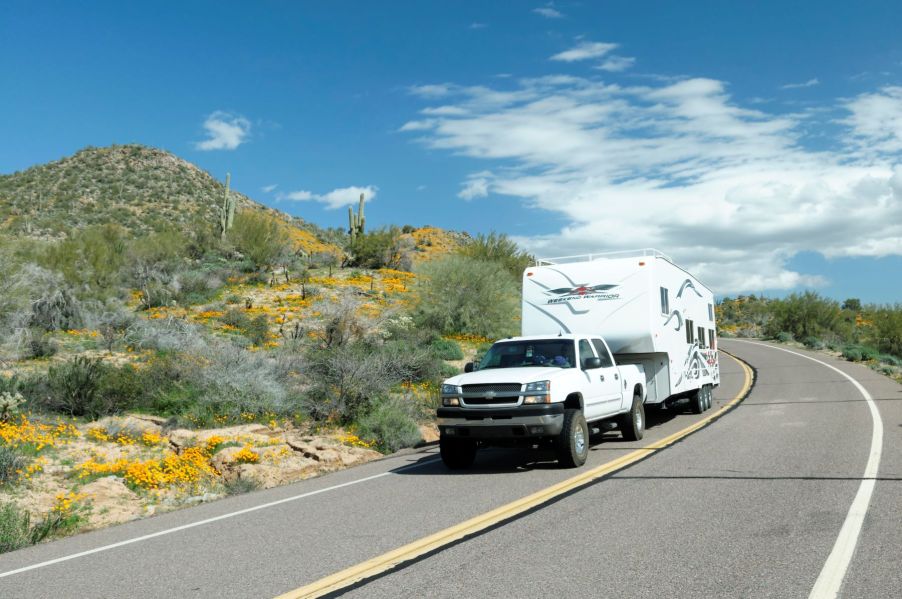
Is It Safe to Tow an RV on the Interstate?
Towing an RV can be a challenge, even for experienced drivers. That’s because an RV’s massive size can make it difficult to maneuver, which can lead to safety hazards on the road. Such challenges lead some drivers to wonder whether it’s safe to tow an RV on the interstate, where high speeds can make it seem extra risky. If you’ve been wondering about such things, we’re here to break down the facts.
Safety is crucial on the interstate

Let’s start by stating the obvious: safe driving is especially important on the interstate. That’s largely because of the high speeds at which vehicles on the interstate tend to travel. It’s one thing to get in an accident at 30 mph. It’s quite another to do so at 70 mph.
In fact, as Maison Law explains, the risk of serious injury at slow speeds is only around 1%. At 50 mph, however, this risk rises substantially to 52%. At 70 mph, the chances of a fatal accident are quite high.
For that reason alone, it’s safe to say that safety should be top of mind when driving on the interstate.
Is it safe to tow an RV on the interstate?
Given the importance of safety on the interstate, it’s reasonable to ask whether it’s a good idea to tow an RV on the highway. In general, we’ll answer in the affirmative. As long as you maintain a safe speed, you can plan to travel to your destination while towing your RV or camper on the interstate.
As we’ve written elsewhere, the safest way to tow an RV on the interstate is to keep your speed at least 10 mph below the posted speed limit. That’s because you’ll want to leave yourself time and space to stop if needed, which is harder to do when towing a large vehicle such as an RV.
In some ways, it’s safer to tow an RV on the interstate than on some other types of roads. As Drivin’ & Vibin’ explains, that’s because on the interstate, “there are no low clearances, narrow roads, or tight turns,” which can easily turn your RV into a potential hazard either to you or to others on the road.
Here are some other important RV safety tips
However, just because the interstate is generally straighter and wider than many other roads throughout the country doesn’t mean you can forget about safety. For that reason, we’ve put together some important safety tips to remember the next time you plan to hit the open road with your RV in tow.
One thing to remember, whether you’re towing an RV or not, is that you shouldn’t drive when tired. If you are starting to feel sleepy, pull over for a nap. Your journey can wait until you’re feeling up to it.
It’s also a good idea to stay in the right lane and not try to pass other drivers. Remember, you want to go below the speed limit when towing an RV, and the place to do that is definitely not in the left lane.
Related to the above, make sure you’re not tailgating other drivers. Since it’s much more difficult to stop your vehicle when you’re towing an RV, you want to leave plenty of space between yourself and the car or truck in front of you.
Finally, keep an eye on the weather forecast. Strong winds can cause your RV to sway dangerously, and low visibility can make it difficult to maneuver on the highway. If you see dangerous weather approaching, ask yourself whether it’s wise to hit the road.
As long as you keep safety in mind, you can look forward to towing your RV down the interstate toward your next vacation destination.


